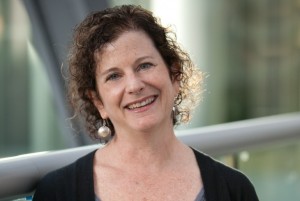Interview with Asker & Philanthropist Janet Levinger
by Brian Saber
 Janet Levinger (primary Asking Styles: Mission Controller, secondary: Rainmaker) is a social impact leader and philanthropist in Seattle. She is the Board Chair for Social Venture Partners Seattle, and serves on many boards and committees including United Way King County, Thrive by Five Washington, Thrive by Five Washington, Child Care Resources, and Eastside Pathways. She is a founding board member of Eastside Prep School in Kirkland.
Janet Levinger (primary Asking Styles: Mission Controller, secondary: Rainmaker) is a social impact leader and philanthropist in Seattle. She is the Board Chair for Social Venture Partners Seattle, and serves on many boards and committees including United Way King County, Thrive by Five Washington, Thrive by Five Washington, Child Care Resources, and Eastside Pathways. She is a founding board member of Eastside Prep School in Kirkland.
Asking Matters President Brian Saber recently interviewed this amazing volunteer about how she goes about asking (she’s really good at it!) and how she likes to be asked. There’s lots to take away from Janet’s experiences.
Brian: Janet, you are a leading philanthropist and volunteer in Seattle, so I assume you’ve been asked for many gifts over the years. I’d love to hear more about your experiences so that my fellow askers and I can learn from them.
What are some of the characteristics of great asks made of you? Can you recall any instances in particular where you felt the ask was made really well and you felt particularly good afterward?
Janet: A couple of asks stand out. One was for a local organization Youth Eastside Services (YES) that helps young people and their families deal with emotional issues including drug and alcohol abuse, sexual abuse, gang activity, and bullying. YES was one of Social Venture Partners’ first investees and I had been a modest supporter for many years. Our family was involved in other ways. My son helped start their Teen Advisory Board. My daughter did a presentation to their board on using SharePoint. And mostly, my mother-in-law worked there almost full-time helping with their database. In fact, she was there so often, they gave her an office. So the ask was to give to the capital campaign and have the IT room named after my mother-in-law. I thought it was brilliant. It allowed us to honor her as well as support the organization. They announced the gift at a board meeting to which my mother-in-law was invited supposedly to give an update on her database work. We invited some of her friends as well to share in her recognition.
 My husband Will and I like to leverage our gifts as much as we can. So I was pleased when the Bellevue Schools Foundation (BSF) asked us to be Angel Donors and provide a match for people making gifts over $1,000 at their annual luncheon. At that time, Will was still working at Microsoft and many of the people who attended the luncheon currently or previously worked at Microsoft. I thought seeing Will’s name listed as an Angel Donor would be impactful. And it was! Amusingly, I forgot to mention to Will that I had made this gift. But after the luncheon, two different people said to him, “I saw you were an Angel Donor. Knowing you support this organization so much made me increase my gift as well.” He thanked them for their support – without a clue what we had done. That night he asked me to warn him first, please!
My husband Will and I like to leverage our gifts as much as we can. So I was pleased when the Bellevue Schools Foundation (BSF) asked us to be Angel Donors and provide a match for people making gifts over $1,000 at their annual luncheon. At that time, Will was still working at Microsoft and many of the people who attended the luncheon currently or previously worked at Microsoft. I thought seeing Will’s name listed as an Angel Donor would be impactful. And it was! Amusingly, I forgot to mention to Will that I had made this gift. But after the luncheon, two different people said to him, “I saw you were an Angel Donor. Knowing you support this organization so much made me increase my gift as well.” He thanked them for their support – without a clue what we had done. That night he asked me to warn him first, please!
Brian: Those are great stories, and how wonderful you get to make such an impact and leverage your giving. Have you ever been asked for a gift in person that didn’t have the leverage or naming opportunity “angle?” For instance, when someone might have asked for $1,000 or $2,500 to support an annual fund – a more general gift rather than for something more specific? I think many of our members face that regularly – they have to raise $100,000 let’s say, and that means asking many people for $1,000+ gifts just to keep the lights on.
Janet: I get asked for $1,000 or $2,500 all the time. I prefer to give unrestricted gifts to an organization because I know how important it is for a nonprofit to have money for overhead. When I first started making donations, I was pretty random about what I gave. Someone would ask me and I’d think “Wow that sounds like a good cause” and I would give. But I realized over time and through my work with Social Venture Partners that I could have more impact if I focused my giving. An SVP partner explained it to me years ago this way: If you give $5,000 per year over 30 years, you’ve given $150,000. That’s a lot of money. And you should be thoughtful about how you give it.
So now I have focused giving areas – primarily education, primarily in Washington State, and more oriented toward systemic change than direct services. Of course, I break those rules and not every gift has to meet all three criteria. I also look at the nonprofit itself. What impact is it having? How innovative is it? How well and often does it partner with other organizations? How strong is its leadership – both board and staff? Finally, I will look at my overall “portfolio” which is really a spreadsheet where we budget how much we give each year. How does this organization fit with what I already give?
When you make an ask of me, I want both the stories and the data.
Brian: Aha – “stories and data” – I hear an Asking Styles question! According to our system, you’re Primarily a Mission Controller and secondarily a Rainmaker, which means your analytic side predominates. So are the stories personal or are they stories about impacts and outcomes? I get the sense that you’re more sold by compelling figures. Does that sound like you?
Janet: The stories are the hook. I get teary-eyed. Literally. But I am also making an investment, which requires more research.
Brian: Wow – teary-eyed. There’s a bit of Kindred Spirit in there! At Asking Matters we talk about the need to fundraise in one’s own Asking Style, and we talk about analytics versus intuitives. The analytics tend to come armed with facts, figures, and outcomes measurements. The intuitives tend to come with personal stories – their own or those of the clients or participants. I know you are a great asker. How do you prepare to ask someone for a gift?
The stories are the hook. I get teary-eyed. Literally.
Janet: As a volunteer, I usually have a staff person from the organization who does most of the research. I like to know what their relationship with the organization is: have they given before (how much, how often, and whether it was directed), have they volunteered with the organization or used its services? I like to know if they give to other organizations and whether we have any feeling for their capacity. It’s nice to know a little bit about them personally, but I also use the first part of an ask to get to know the other person.
Brian: I’ve always said the best research is what you learn from meeting with the prospect. I would think that often you’re at least familiar with the person you’re soliciting, right? What happens if you don’t know the person at all? Do you make the ask the first time you meet?
Janet: In general, I don’t make an ask if I don’t know someone at all. That said, it depends. If the individual is a long-time supporter of the organization and I am meeting with him in an official capacity as board chair, for example, I might ask. People are busy and don’t want to come to lots of meetings. If I don’t know him or her but am with another person who does, then we could definitely make an ask.
Brian: Assuming someone is coming to ask for an organization you know a bit, but not one you’re highly involved with, would you rather first have an exploratory/get-to-know-you meeting and then have someone come back to make an ask? Or would you rather cover everything in one meeting?
Janet: We have not been taking on many new organizations lately. If someone approaches me to learn about a new organization, I make clear if I am not going to fund ahead of time and usually will not go to a meeting. If I decide to go, then I want to have the ask at the first meeting. I don’t have time for many meetings.
Brian: People often think it takes more meetings than it really does to cultivate and solicit someone, but one combined meeting is certainly speed dating! I know we’d all love to have many donors like you who can get engaged and committed so quickly and are so clear and strategic about their giving.
Janet, it’s been great to hear from you and I think you’ve given us lots of food for thought. So let me ask you, in closing, what is the number one thing at a cultivation/solicitation meeting that would cause you to give more than you expected to? What would motivate you to give a gift that even surprises yourself?!
Janet: I very seldom give more than I expect to but on occasion when I understand that there is an impact that I had not realized, I give more. I think we’ve also given more at big events when some wine has been consumed!
Brian: I love it! There’s no question that food – and liquor – can help! Thanks, Janet!




